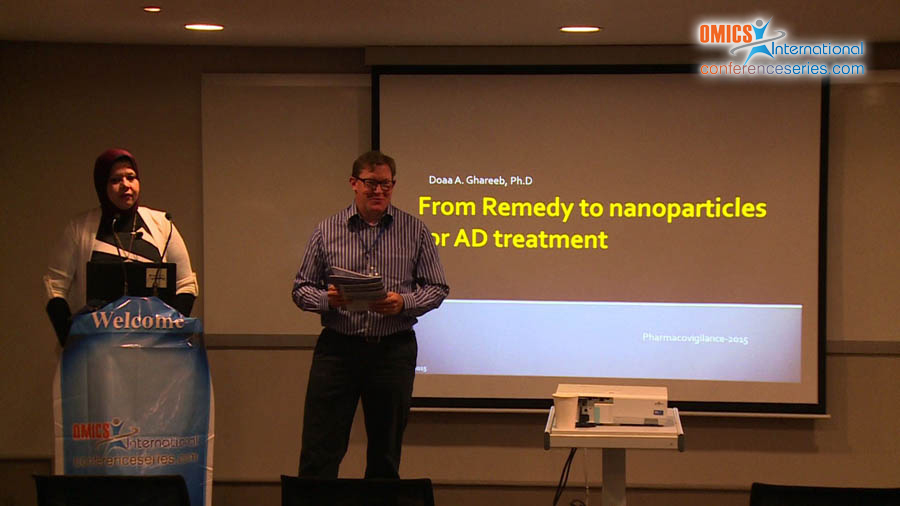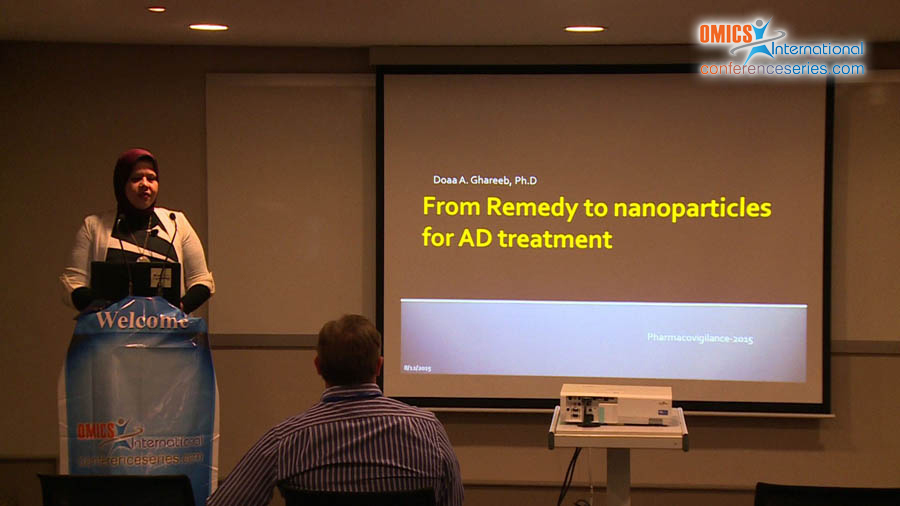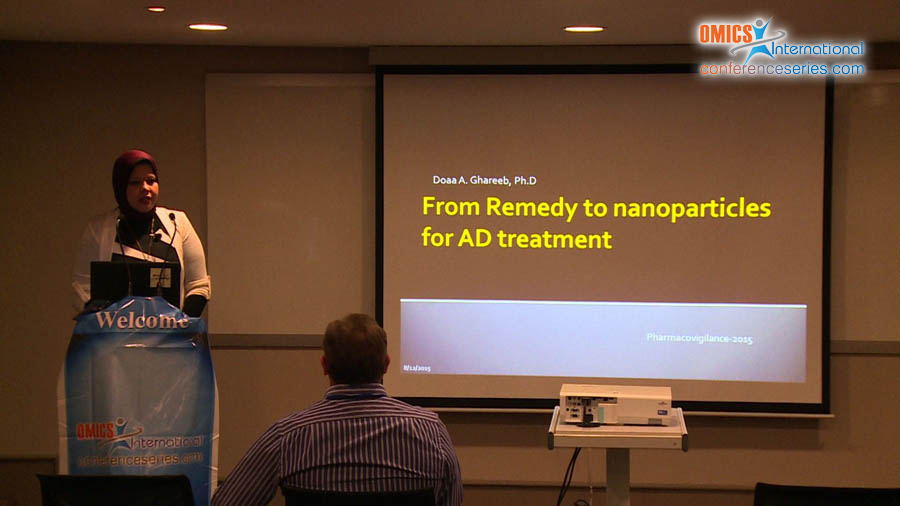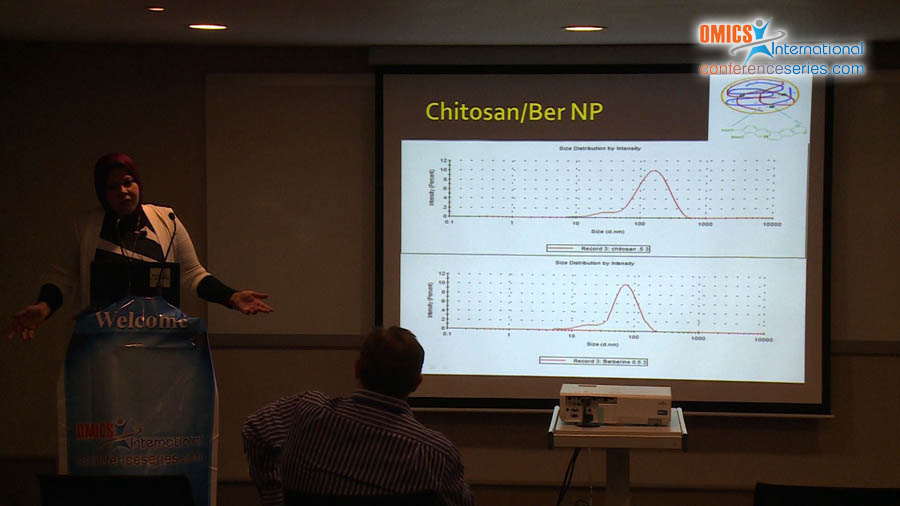
Doaa Ghareeb
Alexandria University
Egypt
Title: Potential molecular mechanism of Berberise vulgaris extract, berberine and berberine chitosan nanoparticles in Alzheimer treatment
Biography
Biography: Doaa Ghareeb
Abstract
Major characteristics of Alzheimer’s disease (AD) are synaptic loss, cholinergic dysfunction, and abnormal protein depositions in the brain in form of toxic non-soluble amyloids and hyperphosphorylated tau. Our main focus in the present study is to assess the therapeutic effect of berberise vulgaris extract, berberine and berberine nanoparticle against AD-like disease by tracking its effect on the oxidative stress- inflammatory pathway and MAPK pathway as well as AD hall markers. AD induced in rats by oral administration of 5 ml of contaminant water for 3 months or insulin resistance for one month. Then the treatment with tested compounds was carried out for another one month. Firstly, we examined the berberine effect in silico and we found that berberine was potent anti-acetylcholine and inhibited both TNF-alpha-converting enzyme and COX-2. Our biochemical and molecular parameters showed that tested compounds inhibited the AChE and down-regulated it's expression that could be returned its ability to act as potent antioxidants in brain tissue. Matching with -in silico study, berberine normalized the production of TNF- alpha, IL12, IL 6 and IL 1β, ADAM 10 and ADAM 17. Finally, Berberine activated the production of APP-40 that acts as antioxidants for brain tissue and inhibited the production of APP-42 fragment that responsible for beta-amyloid plaques formation. Altogether, our data confirmed the use of berberine as well as berberine nanoparticles, as drug candidate for AD like disease treatment as berberine can lower amyloid beta via multiple mechanisms.




